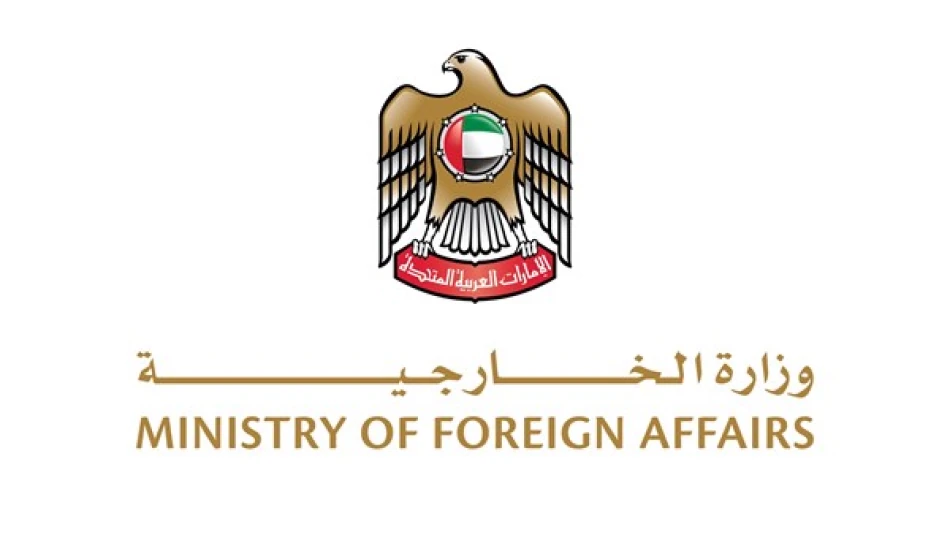
Syria Situation Evolves: Joint Statement Offers Insights on Latest Developments
Arab Nations Rally Behind Syria's New Leadership Amid Israeli Strikes and Regional Instability
Foreign ministers from eleven Arab nations have issued a unified statement backing Syria's transitional government under President Ahmad al-Sharaa, condemning Israeli military strikes as violations of international law while welcoming a peace agreement that ended recent unrest in Suwayda province. The coordinated diplomatic response signals growing regional consensus around Syria's post-Assad reconstruction, even as security challenges persist.
Regional Diplomatic Alignment Takes Shape
The two-day ministerial talks brought together representatives from Jordan, UAE, Bahrain, Turkey, Saudi Arabia, Iraq, Oman, Qatar, Kuwait, Lebanon, and Egypt—a remarkably broad coalition spanning traditional regional rivalries. This level of coordination suggests that Syria's new leadership has achieved something the Assad regime never could: genuine Arab League buy-in for reconstruction efforts.
The timing is significant. With Syria's economy devastated after thirteen years of civil war, international recognition and financial support will be crucial for any sustainable recovery. The ministers' joint statement emphasizes unity, sovereignty, and territorial integrity—language that positions the new Syrian government as a legitimate partner rather than a pariah state.
Suwayda Agreement Signals Internal Stability
The ministers specifically welcomed a recent agreement ending unrest in Suwayda province, where Druze communities had staged months of protests against economic conditions and government policies. President al-Sharaa's commitment to prosecute officials responsible for abuses against Suwayda residents represents a notable shift from Assad-era impunity.
Breaking from Sectarian Governance
The emphasis on "rejecting violence, sectarianism, and attempts to sow discord" suggests Syria's new leadership is actively working to dismantle the sectarian power structures that characterized Assad's rule. For international investors and reconstruction partners, this signals a potential move toward more inclusive governance—though implementation will be the real test.
Israeli Strikes Complicate Regional Calculations
The ministers' condemnation of "repeated Israeli attacks" on Syrian territory reflects growing frustration with Israel's expanded military operations since Assad's fall. Israeli forces have conducted hundreds of strikes targeting former Syrian military assets and have occupied additional territory in the Golan Heights buffer zone.
From Israel's perspective, these operations aim to prevent advanced weapons from reaching hostile groups. But for Syria's Arab neighbors, the strikes represent a destabilizing factor that could undermine reconstruction efforts and regional stability. The ministers' call for UN Security Council action and full Israeli withdrawal from occupied Syrian territory sets up a potential diplomatic confrontation.
Economic Implications and Reconstruction Prospects
The joint statement's emphasis on international reconstruction support carries significant economic weight. Syria's GDP contracted by an estimated 60% during the civil war, with infrastructure damage exceeding $400 billion according to UN estimates. Gulf states, particularly the UAE and Saudi Arabia, possess the financial resources to fund large-scale reconstruction—but only if they view Syria's government as stable and legitimate.
Sanctions and Financial Challenges
Notably absent from the ministers' statement is any mention of US and European sanctions that continue to restrict Syrian economic activity. These measures, designed to pressure the Assad regime, now complicate efforts to rebuild under new leadership. The Arab nations' coordinated support may be laying groundwork for a broader push to ease international sanctions.
Regional Security Architecture in Flux
The ministers' declaration that "Syria's security and stability are pillars of regional security" reflects broader Middle Eastern power dynamics. Iran's influence in Syria has diminished significantly since Assad's departure, creating space for Arab states to reassert their role in Syrian affairs.
Turkey's participation in the ministerial talks is particularly noteworthy, given Ankara's complex relationship with Syria during the civil war. Turkish involvement suggests potential cooperation on refugee returns and border security—critical issues for both countries' stability.
Testing International Patience
The success of this Arab diplomatic initiative will largely depend on Syria's new government delivering on promises of inclusive governance and accountability. President al-Sharaa's administration faces the enormous challenge of rebuilding state institutions, managing diverse ethnic and religious communities, and maintaining security while avoiding the authoritarian excesses that characterized Assad's rule.
For regional powers, the stakes extend beyond Syria itself. A successful Syrian reconstruction could demonstrate that Arab-led solutions can address regional crises more effectively than external interventions. Failure, however, could reignite instability and create new refugee flows that would destabilize neighboring countries.
The ministers' unified stance represents a significant diplomatic achievement, but transforming statements into sustainable peace and prosperity will require sustained commitment and considerable financial resources. The real test begins now.
Most Viewed News

 Layla Al Mansoori
Layla Al Mansoori






